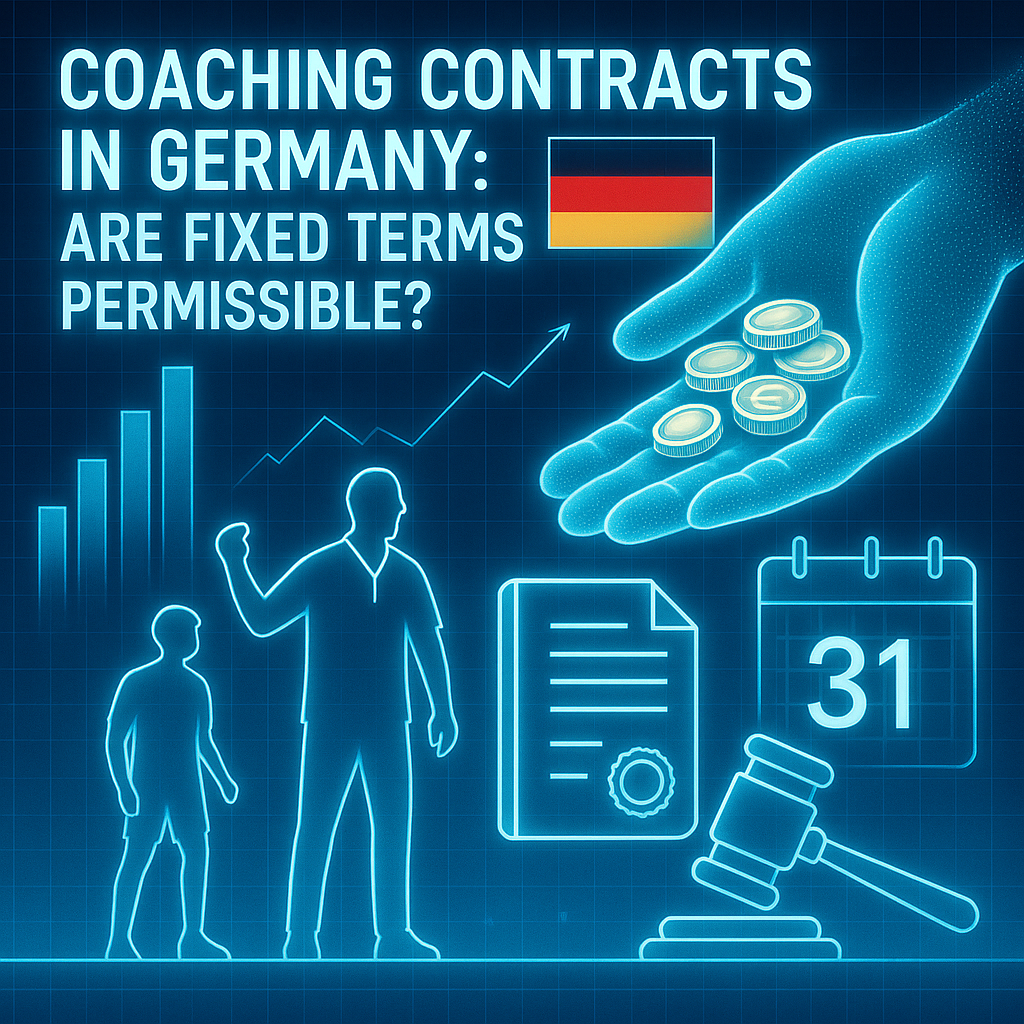COACHING CONTRACTS IN GERMANY: ARE FIXED TERMS PERMISSIBLE?

In the world of professional sports, including in Germany, the limitation of coaching contracts is common practice. But is it also permissible under labor law? And if not, what are the legal consequences?
The starting point in German labour law is section 14 of the Part-Time and Fixed-Term Employment Act (TzbfG). According to section 14 II S.1 of the TzbfG, a fixed-term employment contract is permissible for up to two years without any objective reason.
In other words, if, for example, a Bundesliga soccer club concludes an employment contract with a head coach, assistant coach, or goalkeeping coach for a maximum period of two years, there are no labour law concerns regarding this employment contract in Germany. Therefore, a fixed-term contract “without objective reason” is acceptable for up to two years.
But what if it is a three-year contract or an extension of the original two-year fixed-term employment contract? Are there any concerns about the admissibility under labour law, even though this is common practice?
To answer this question, we need to look at section 14 I of the TzbfG, which legally defines the conditions under which a fixed-term employment relationship is permissible, in addition to the fixed-term contract without objective reason beyond two years.
This is the case if one of the “objective reasons” for the fixed-term contract listed in section 14 I of the TzbfG applies. The question now arises as to whether a trainer’s employment contract fits one of the objective reasons listed by law. Possible reasons include the so-called “characteristic nature of the work” and “reasons inherent in the employee.”
The case law that has developed over the years on these two points largely assumes that a trainer’s employment contract is not covered by this. In particular, “wear and tear”—a type of “wear and tear” of a coach due to extended membership of a team, often described as “the coach is no longer reaching the team” or “we need a new impetus”—does not generally constitute a factual reason for a coaching employment contract extending beyond two years, according to case law—especially if the composition of the team changes regularly. A judgment of 27 July 2022 by the Gelsenkirchen Labour Court (Case number 2 Ca 563/22), regarding the invalid limitation of a head coach contract in the youth sector, illustrates this point.
Thus, coaching employment contracts of more than two years or those “extended” after an initial two-year term are, generally, considered inadmissible fixed-term contracts under German labour law. However, this does not make these employment contracts invalid, quite the opposite. Section 16 of the TzbfG stipulates that an invalid fixed-term contract results in an indefinite employment contract, which can pose immense problems for clubs due to the almost impossible possibility of termination, whilst giving coaches a significant negotiating position in practice.
For further information and advice on this extremely complex and practical matter, email Oliver Fischer, the Head of our German Desk, at fischer@valloni.ch.